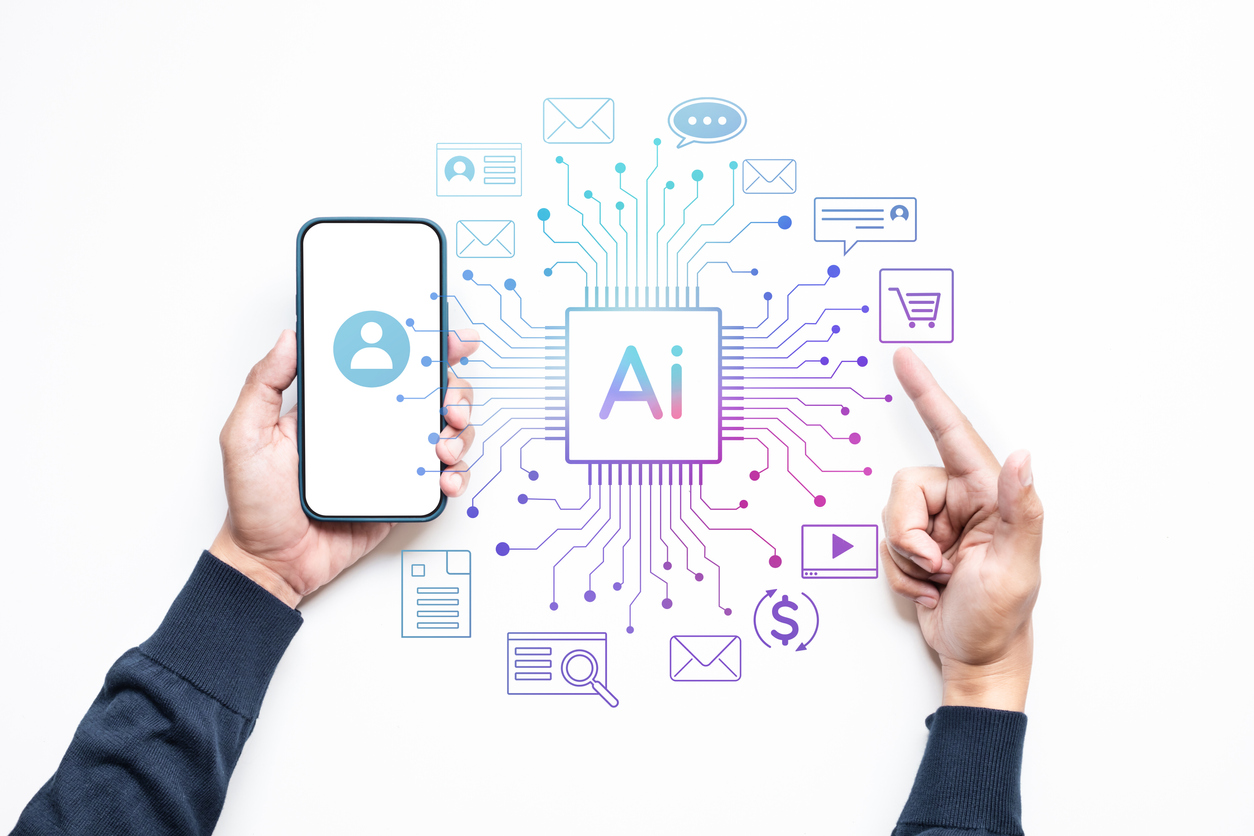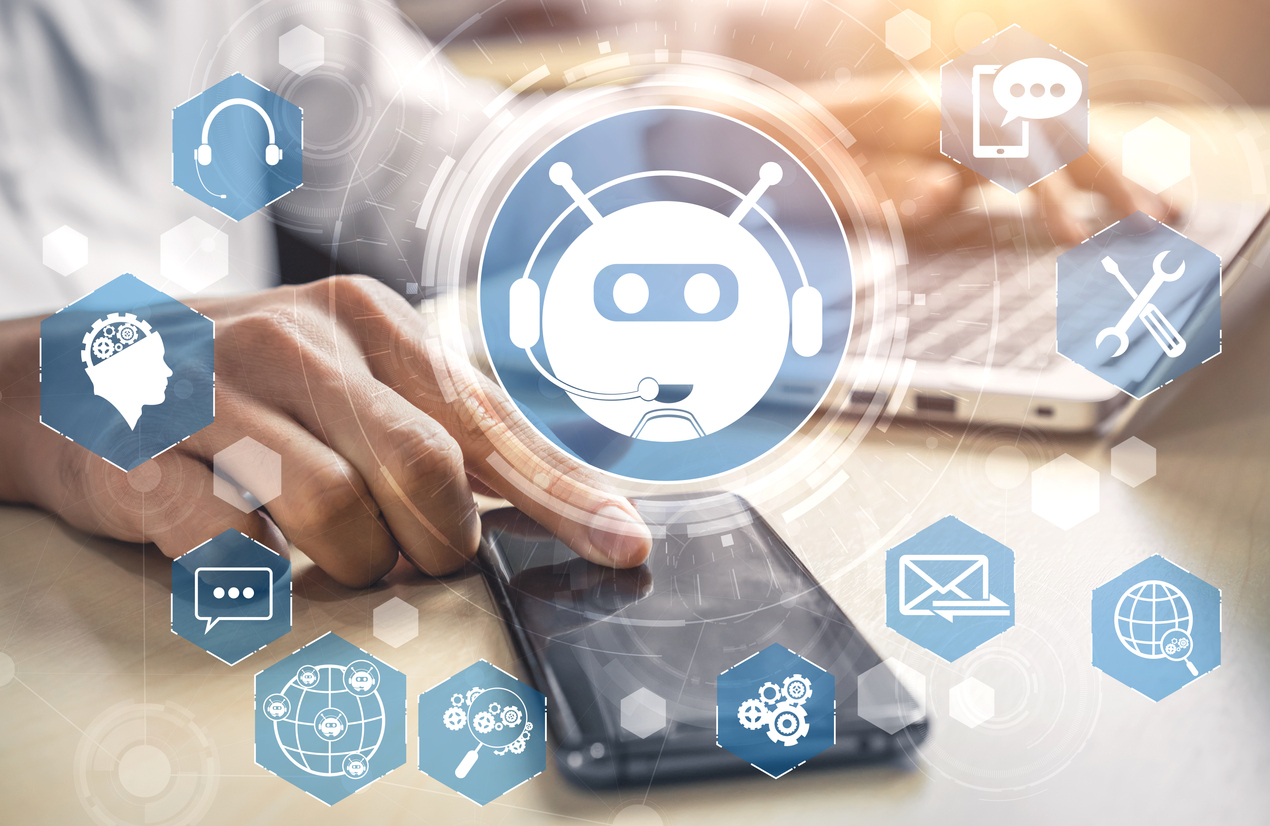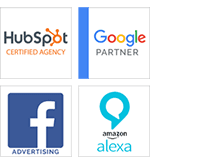
Empowering and Transforming Digital Marketing with AI
Introduction to AI in Digital Marketing
Artificial Intelligence (AI) is not just a buzzword but a pivotal game-changer. AI and digital marketing are increasingly intertwined, revolutionizing how marketers approach their strategies. Embracing AI can significantly enhance your marketing efforts, from personalized customer interactions to streamlined operations.
Personalization at Its Best
AI excels in creating personalized experiences for users. By analyzing vast amounts of data, it enables:
- Tailored Content: The ability to understand and act on user preferences changes the game. This smart system crafts content that feels tailor-made, from recommendations akin to Netflix’s model to targeted advertising, enhancing user engagement significantly. Stevens & Tate offers insights on leveraging such capabilities in Creating Content That Resonates.
- Predictive Analysis: This technique is reshaping how strategies are formed. By analyzing user interactions, this technology forecasts future needs, allowing businesses to stay a step ahead. The result? Campaigns that not only meet but anticipate customer desires, as discussed in Predictive Analysis in Marketing.

Cost-Effective Marketing Solutions:
The deployment of this technology has been transformative across sectors:
- Automated Customer Service: Virtual assistants and chatbots, working round the clock, have redefined customer service in retail, banking, and healthcare, significantly cutting costs. Retailers use this technology for real-time recommendations, while banks offer instant account assistance. Healthcare and telecommunications benefit similarly, enhancing efficiency without sacrificing quality. The impact of AI in customer service is further explored in AI and Customer Service: A New Frontier.
These systems constantly evolve, learning from past interactions to improve future engagements, thus becoming an indispensable tool in customer service.
- Efficient Resource Allocation: This smart technology dives deep into the outcomes of various campaigns to pinpoint the most effective marketing channels. By doing so, it ensures that every dollar spent is used in the most efficient way possible, leading to a more impactful marketing strategy and improved financial outcomes. This precision in resource allocation not only saves money but also amplifies the reach and effectiveness of marketing efforts.
Streamlining Marketing Efforts:
- Enhanced Lead Generation: By leveraging advanced data analytics, this technology sifts through data to identify high-potential leads with remarkable accuracy. This process not only streamlines the targeting process but also enriches the sales funnel with quality prospects. The result is a more efficient marketing strategy that not only captures interest but also fosters lasting engagement, leading to better retention and conversion rates.
- Optimized Ad Campaigns: With the ability to make real-time adjustments, this technology ensures that advertising campaigns are always performing at their best. By continuously analyzing engagement and conversion data, it keeps campaigns aligned with audience preferences and behaviors, leading to more effective engagement and a higher return on investment. This adaptability means that marketing messages remain fresh and relevant, deepening the connection between brand and audience.

Customization of Products and Services:
- Predictive Product Development: By staying one step ahead of market trends, this technology empowers businesses to develop products that are ready for the future. It uses predictive analytics to forecast upcoming market demands, enabling companies to innovate proactively. This forward-thinking approach is essential for staying competitive and relevant in rapidly changing markets.
- Service Personalization: This technology takes personalization to the next level by analyzing individual customer data to tailor services and products. By understanding the unique preferences and needs of each user, it enables businesses to offer highly personalized experiences that resonate on a personal level. This customization not only enhances customer satisfaction but also fosters loyalty, making users feel truly valued and understood.
For further exploration of AI’s impact on digital marketing, resources such as Marketing AI Institute and Forbes Insights on AI provide comprehensive information and case studies.
Click Here to Read More About WPBakery AI
Overcoming the Cons of AI in Marketing
While AI offers numerous benefits, it’s crucial to address its limitations:
- Human Touch in Chatbots: While AI-powered chatbots provide efficiency, integrating human customer service ensures a balanced approach. This combination offers the quick resolution of simpler queries through AI, while more complex issues are handled by humans. This hybrid model ensures that while technology streamlines the process, the human element preserves empathy and understanding, crucial in customer relations.
- Balance Between AI and Human Creativity: While it is true that AI offers valuable data-driven insights, it cannot replace human creativity and intuition. The most effective marketing strategies combine AI’s analytical strengths with human creativity and emotional intelligence. This synergy ensures that marketing campaigns are not only data-efficient but also creatively appealing, resonating with the human aspect of the target audience.
- Accuracy of Algorithms: The effectiveness of AI is contingent on the quality of data it processes. Inaccurate or biased data can lead to flawed outcomes. Therefore, continuous monitoring, updating, and refining of AI algorithms are essential. This vigilance ensures that AI remains an accurate and reliable tool in marketing, adapting to new data and evolving market trends.
The use of AI in digital marketing offers a wide variety of useful benefits. From personalized customer experiences to cost-effective strategies and streamlined operations, AI is reshaping the marketing landscape. However, it’s crucial to maintain a balance between automated AI processes and the irreplaceable human touch. By thoughtfully integrating AI into your marketing strategies, you can stay ahead in the competitive digital arena, turning leads into loyal customers more efficiently.

The landscape of the Internet is ever changing and Nicole has the energy and aptitude to keep Stevens & Tate Marketing out in front of the pack. She leads an enthusiastic team in strategic planning, development, search engine marketing, online promotions and advertising for the web.



